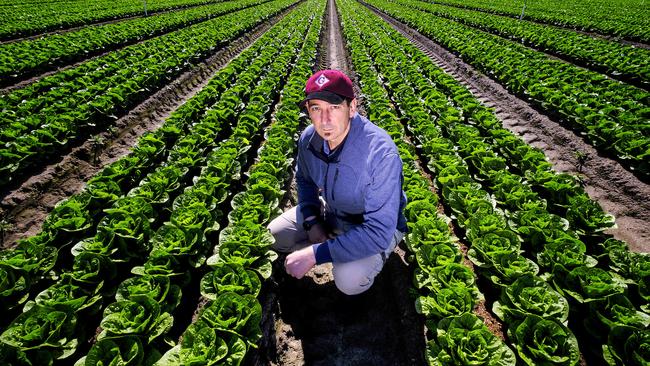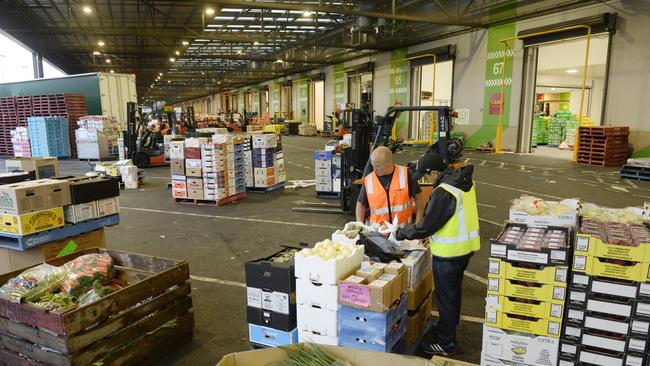The risk to Victorian food security and the cost of groceries
Growers could send fresh produce interstate to fetch the best prices possible, in a move that could affect availability and pricing of fruit and vegetables.
Fresh produce wholesalers and growers have warned of the risk to Victoria’s food security if a proposed Epping market rent hike is enforced.
The government-owned Melbourne Market Authority recently announced plans to increase annual rent for wholesale tenants by more than 100 per cent across 10 years, a move which triggered protests from wholesalers and produce growers and a rent strike.
AusVeg Victorian president Paul Gazzola said growers will ultimately be forced to look for alternative markets, potentially interstate with potential consequences for the state’s food security and prices for consumers at the checkout.
“The reality is as growers the buck tends to stop with us. We cop it from both ends,” Mr Gazzola said.
Mr Gazzola said the proposed rental increase would leave some growers “hamstrung”, with many considering diverting produce to interstate markets to get a better price.

“We can’t divert all our produce interstate. Part of our job is trying to get the best price we can at the farm gate, and we’re monitoring markets daily to see where we can get the best result. If it means sending stuff to Melbourne which incurs a fee, we’ll lean towards markets that are less onerous, and Melbourne may be shortened up,” Mr Gazzola said.
“If we send product away from Victoria and shorted up the local market, it could lead to increased prices on the market, which will definitely be passed onto the consumer, as the retailer would be buying it at increased cost.”
With Victoria one of the country’s largest producers of horticultural produce, Mr Gazzola said a “huge amount” of produce was at stake.
“This is why the central markets are so important,” Mr Gazzola said.
“Take it away, or dilute its viability, and it gives power to the bigger retailers to control the narrative.”

Deb Corrigan is a sixth generation vegetable grower at Clyde, southeast of Melbourne.
She said she would consider selling her produce at alternative markets outside of Victoria, such as South Australia and NSW, in a bid to make the best on-farm business decision.
“When all the costs have gone up, you’re trying not to put your prices up … we’re under a lot of pressure from the major supermarkets to keep the price down. How long can you absorb that before it’s not financially viable?”
Ms Corrigan said she was working to reduce costs where possible, but with 140 employees “this is a big machine to run”.
“You’ve got to work hard to make a profit to pay these people. I take responsibility to be viable so my workers have peace of mind.
She said while consumers tend to have “respect for farmers and what we do”, she doesn’t believe government does.
“It’s crazy how, over time, how little respect the government has for the essential service of farmers,” Ms Corrigan said.





